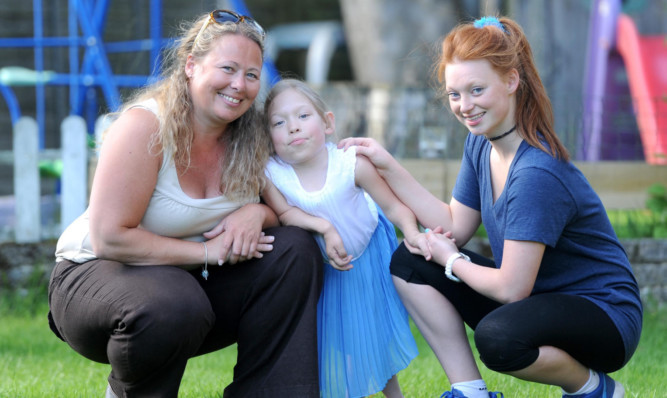
A little girl, who will never grow taller than 3ft, faces an early grave if the NHS refuses to fund her life-saving drugs.
Enola Halleron has a rare and incurable growth-stunting disease, Morquio, which affects just 105 people in the UK.
The 11-year-old, who still fits into the clothes she wore when she was three, will have her life cut short without the wonder drug Vimizim.
Until now, it has been made available free of charge by the drugs company that produces it. But that will end next month and the NHS has taken more than a year to decide whether it will pay for it in the future.
“Time is running out for Enola and the Government and NHS are playing with her life,” said mum Donna, 41. “Vimizim is the only drug known to effectively treat Morquio.
“There is no cure but this stops some of the worst symptoms and lengthens sufferer’s lives. When the drug starts coming out of her system the damage will start again and, once it is done, can’t be reversed.”
Most children diagnosed with Morquio will not grow more than three-feet-tall and will, typically, only live to 25. The disease causes changes to the skeleton, making movement difficult, with many children unable to walk by their teens. However, sufferer’s organs continue to grow, causing life-threatening complications.
Enola, of Blackburn, Lancs, was diagnosed when she was two and was one of 34 people to join clinical trials of Vimizim, which started in 2009. Aged just five, she was taken to Manchester Royal Infirmary once a week, to be hooked up to a line for gruelling five-hour course of intravenous treatment. The drug began working by halting the progression of the disease.
But Enola faces an uncertain future after NHS England scrapped its policy for approving drugs for rare conditions in April last year. She has been given the drug on “compassionate grounds” by manufacturer BioMarin since then. It has been licensed in 21 countries but, at a cost of £180,000 a year, is out of reach for most people.
The drug company has announced it will no longer pay for treatment while the NHS continues to delay any decision on future funding.
Donna, who has another daughter Cora, 16, said: “I want them to pull their finger out and make a decision. I want Enola to have the drug so she can have a longer and better quality of life. I think that is only fair.”
A spokesman for BioMarin said no decision is likely until at least 2016.
He said: “Patients can deteriorate quickly without treatment and the 34 children in the UK who were on the trial deserve to be able to receive treatment with minimal disruption to their lives.”
An NHS England spokesman said a consultation is underway on whether to prescribe Vimizim for Morquio sufferers and a decision would be made “in due course”.
He said: “It’d be wonderful to be able to fund everything, but that’s never been the reality. Instead there is a process where the NHS carefully identifies priorities for new treatments.”

Enjoy the convenience of having The Sunday Post delivered as a digital ePaper straight to your smartphone, tablet or computer.
Subscribe for only £5.49 a month and enjoy all the benefits of the printed paper as a digital replica.
Subscribe